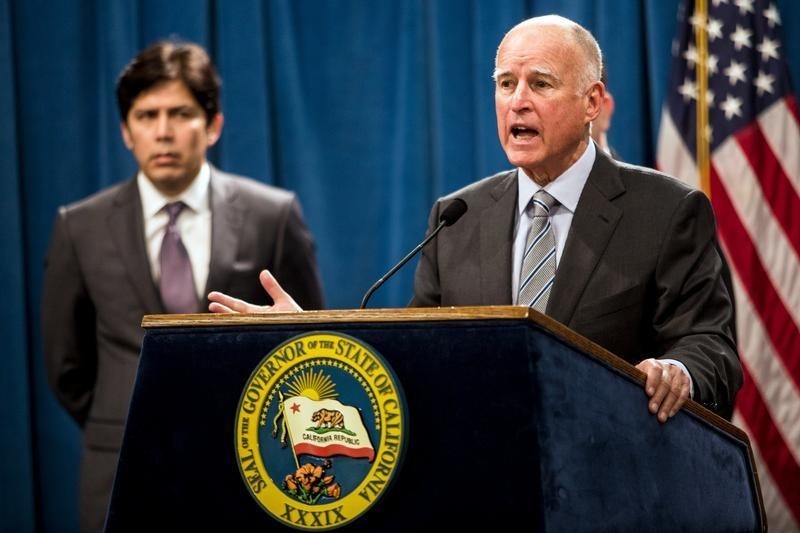By Sharon Bernstein
SACRAMENTO, Calif. (Reuters) - California Governor Jerry Brown and Democratic lawmakers who dominate the state legislature said on Tuesday they reached a deal on a $115.4 billion budget for the fiscal year starting July 1.
The deal holds spending roughly at a level called for by Brown, a fiscal moderate, and fought by his party's progressive wing, which wanted more spending on education and social programs, among others.
"We did have some serious differences," Brown said at a news conference where the deal was announced. "But at the end of the day it's my job to keep this budget on an even keel. At the end of the day I've got to sign or not sign."
The budget includes $1 billion to pay off money owed to the state's schools from years of deferring funding during tough economic times and puts $1.9 billion in the state's rainy day fund.
It also includes $40 million to expand Medi-Cal, the state's program providing healthcare for the poorest Californians, including low-income children who are undocumented immigrants. It also provides $265 million to increase the number of children offered state-subsidized preschool and childcare.
Brown also said he was calling two special sessions of the legislature - one to deal with funding for Medi-Cal amid changes to federal rules that could result in a loss of $1 billion in tax revenues from health insurers, and another to find ways to improve the state's crumbling transportation infrastructure.
The budget deal included an extra $25 million for the University of California, but only if its 10 campuses enroll 5,000 more undergraduates for the 2016-2017 school year than they do in the 2015-2016 school year.
The extra funds - and the strings attached to them - are the latest twist in an ongoing tug-of-war between UC President Janet Napolitano, who last year threatened to raise tuition if Brown and the legislature did not provide more money, and Brown, who has said the campuses would get additional funds only if they hold tuition steady.
Brown, who was governor for two terms from 1975 to 1983 before returning to the state's helm in 2011, is credited with shoring up the state's finances after a series of economic downturns.

Pushing back against his fiscally moderate approach, lawmakers on Monday passed a budget that would have paid more for social services and other programs, before mostly acceding to his demands in Tuesday's deal.